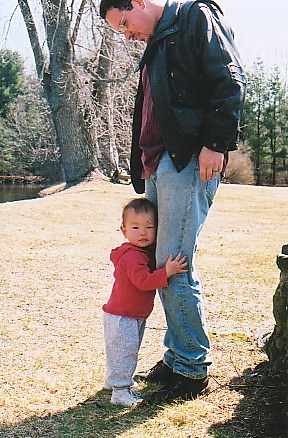|
|
Saturday, December 24th, 2005
I've been reading The Shipping News by Annie Proulx, gotten far enough in to start forming an opinion of it. I tentatively like the short stories better but am thinking this book maybe just starts out slow, and if it stays on the trajectory it's on currently, it could end up being a really good book. -- I guess short stories don't have as much room to start out slow before grabbing you. Why does it start out slow? It might be that Proulx is trying to show how Quoyle's whole life from his childhood until his wife's death has been spent in a fugue state, without any connection to the world around him. This would make sense to me but I don't think it quite worked -- I didn't have any connection to Quoyle in his fugue state. It might have worked better in first person. Since the family's arrival in Newfoundland, the story has really picked up and the characters are seeming a lot more real to me. This is only about a quarter of the way in, so there's plenty of room for the book to redeem its opening. One gripe I have is, Quoyle has no first name. Seems to me like his aunt at least should address him by first name. (I'm not sure now that she has yet called him by name at all, maybe when she does this will be resolved.)
posted afternoon of December 24th, 2005: Respond
➳ More posts about Annie Proulx
|  |
Monday, December 26th, 2005
I had the day off! I spent part of the afternoon in a bar, reading The Shipping News. It is a well-crafted story -- I am laughing at the jokes and feeling sympathy for the characters. But this is where I think it compares poorly to the short stories -- I can see the craft in the story, see Proulx making transitions and nod to myself in appreciation of a skillful transition, laugh at a punchline and think the joke was told well. When reading the stories I was much less conscious of my identity as a reader.
posted evening of December 26th, 2005: Respond
➳ More posts about Readings
|  |
Thursday, December 29th, 2005
Today I finished The Shipping News; and also I read Roger Ebert's review of the movie based on this book. I must say Ebert captured the problems I had with the book pretty well, though I don't know if he read it. The characters in this book were not fully human, just collections of idiosyncrasies designed to highlight their author's cleverness. (And yet Proulx is such a good writer, the book still ends up being a fun read. I feel ungrateful, carping about its failings.)
posted evening of December 29th, 2005: Respond
| |
|
Drop me a line! or, sign my Guestbook.
•
Check out Ellen's writing at Patch.com.
| |

